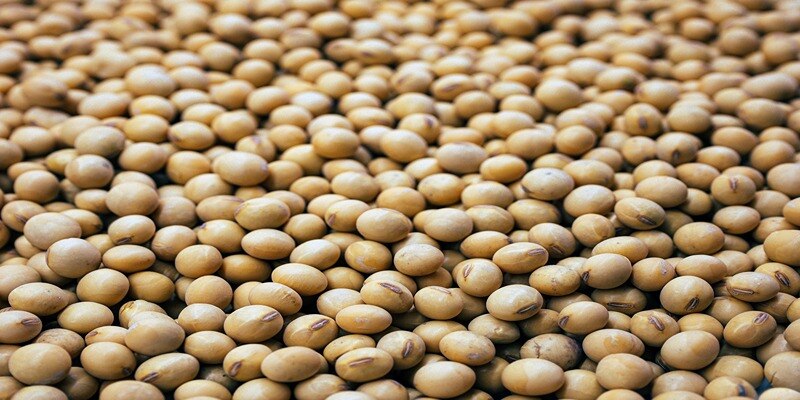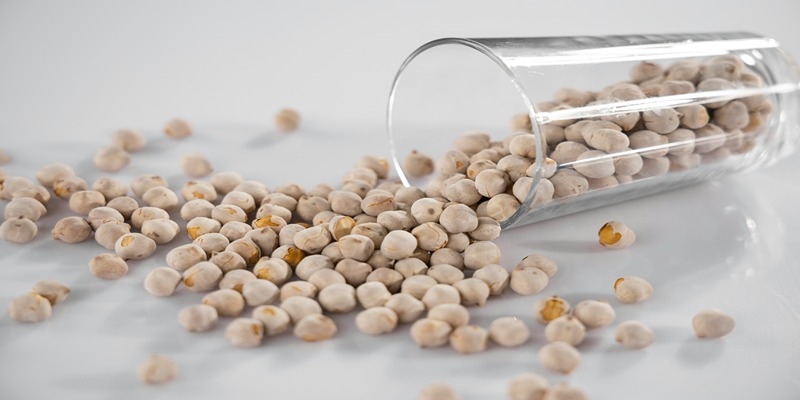Understanding Soy's Impact on Gout Sufferers
Mar 19, 2024 By Madison Evans
One of the most common forms of inflammatory arthritis, gout, occurs as sharp and severe attacks which include pain, swelling and tenderness in the joint, particularly targeting the big toe. Although genes affect gout greatly, dietary options also tremendously contribute to this disease's development and treatment. Food rich in purines like fish, meat, beer and coffee worsen gout conditions. Nevertheless, soy is still a topic of contention when it comes to gout treatment. This article will explain how gout affects day-to-day activities and the significance of dietary changes in relieving symptoms.

Soy and Gout: An Analysis
The Composition of Soy and Its Effects on Gout
Soybean is a legume that is well-known for its nutritional content which includes protein, fiber, vitamins, and minerals. On one hand, purine is its content; on the other hand, it is viewed to have an effect on gout. Purines are organic substances, which as the by-product of the chemical reaction produce uric acid, a major factor that leads to a gout attack. Even though soy has a purine content, research indicates that the amount of purine in it is moderate as compared to the rest of the foods that are known to influence gout. Furthermore, soy's fiber and phytochemicals may, in fact, neutralize the soy purine content and control gout symptoms.
Scientific Studies on Soy and Gout Relationship
A lot of studies have covered the soy and gout. However, the results are not consistent, with some studies indicating that soy products, particularly tofu and soy protein, may not be a risk factor for uric acid serum and gout. There are some studies that don't only reveal the negative effects but possibly also the positive ones. Although the research was revealing regarding the impact and mechanism of soy consumption on gout development and management, further investigation is needed to give more precise results. Such knowledge allows people to make intelligent dietary decisions that take into account the factors that influence gout with respect to soy consumption.
Gout Dietary Choices: Incorporating Soy
Benefits of Including Soy in a Gout Diet
Soy can be introduced into a diet which poses no extra risk of gout. Therefore, using soy as a part of the mentioned diet will probably come along with several benefits. Soy foods are plant-based protein sources that may be a good alternative for people who cannot tolerate purine-rich animal proteins like red meat and seafood. In this respect, soybeans are a rich source of antioxidant and anti-inflammatory phytochemicals, such as isoflavones. These chemicals may be helpful in reducing inflammation and oxidative stress that can occur in gout attack. Interestingly, soy products also tend to be low in saturated fats and cholesterol, which are important elements for maintaining heart health, a factor that usually frustrates gout, which is often associated with cardiovascular diseases.

Recommended Soy-Based Foods for Gout Sufferers
Soy-based foods can be a part of diet plans of gout sufferers to get the benefits rather than causing gout to get worse. Soybean crop outran many meat products in stir-fries, salads, sandwiches, etc and is the best substitution due to its high protein content. Yogurt edamame is great as a healthy snack or garnishing for salads and soups. Soy milk, being veganic, can be a dairy milk alternative for smoothies, oatmeal, and baked food with a nutrient-rich content. On the other hand, soy products are rich in probiotics as well as tempeh which supports a gut and the well-being. The soy-based foods can be added to sizzling meals of residents without gout, who also can maintain a varied diet as well as achieve their dietary goals.
Soy Health Effects Beyond Gout
Soy has an impressively balanced nutritional profile, thus being a great food choice in a healthy diet, and not only because it may decrease gout risk. The nutrients in whole grains support many health benefits including cardiovascular health, a stronger digestive system, and stronger bones.
Although soy has demonstrated quite a few health advantages, it is worth mentioning that it also has some risks and things to bear in mind. Soy is an allergen which is quite common. For people with soy allergies, it is recommended to steer clear from soy products to prevent any adverse reactions. In addition, a few people might complain about the digestive discomfort, such as gas or bloating, after consuming soy products, especially if they eat a lot of it or have an underlying digestive disease. Another point is that soy also has substances called antinutrients, like phytates and lectins, which may affect nutrient uptake in some people. Nevertheless, the demerits are rather small when soy is consumed within the balanced diet framework. It is necessary to take into account the tolerance and taste of the person when including soy in his/her diet, and the healthcare provider or the registered dietitian can provide personalized instruction. Ultimately, soy is a very beneficial food to add to your diet, providing a broad range of nutrients that contribute to good health.
Alternative Dietary Strategies for Gout Management
Foods to Avoid and Include for Gout Prevention
Gout is controlled by adopting proper dietary choices so as to reduce purine intake as well as maintain good health. Meats containing high purines, for example, organ, shellfish, and other seafood typically containing anchovies and sardines should be reduced or totally abandoned to minimize purine ascent. Tart cherries and cherry juice have been linked to uric acid level decrease and the alleviation of gout flares so they can be drawn into a diet that is aimed at gout reduction.
Role of Hydration and Other Dietary Supplements
The other key aspect is hydration which is important in gout management by helping to eliminate uric acid through kidneys. The consumption of lots of water throughout the day is one way to dilute urine and prevents crystals of uric acids. Furthermore, some dietary supplements can aid gout treatment as well. Vitamin C supplements have been proven that they lower serum uric acid levels which can help to keep gout attacks down. While this is true, you must ensure first that you have consulted with your healthcare provider before beginning supplements so that he will be able to tell if they are safe and appropriate for your individual needs and your medical conditions. Through these dietary tips, plus supplements, effective gout control is achievable and the number and seriousness of gout flares will be considerably reduced.
Conclusion
The connection between soy consumption and gout is complicated. There is an opportunity to include soy in a gout-friendly diet that may provide some benefits without making the gout symptoms worse. The nutrient content and multifaceted health implications of soy go beyond gout alone, which makes it an important component of a holistic health plan. Nonetheless, an individual ought to be the one to decide and should consult a healthcare provider before making any changes to their diet. A balanced diet containing nutritious foods and the use of other dietary approaches is a way to help those with gout to control their condition and live a better life.







